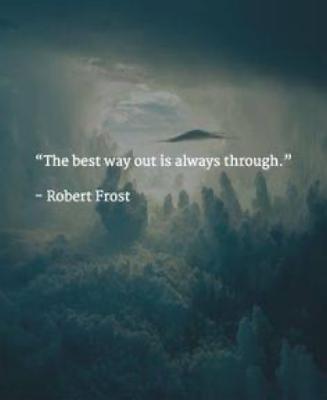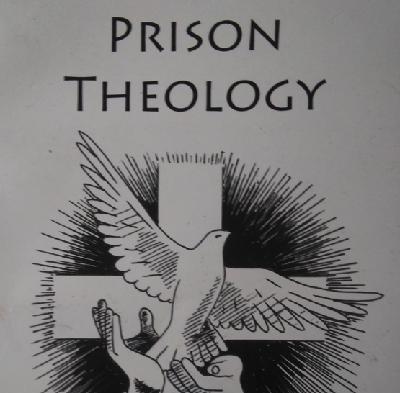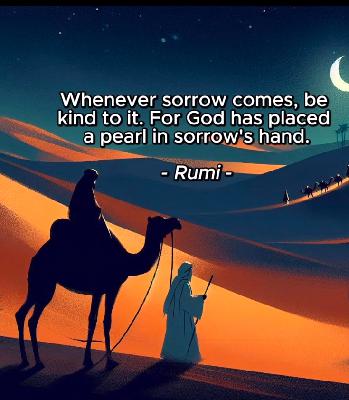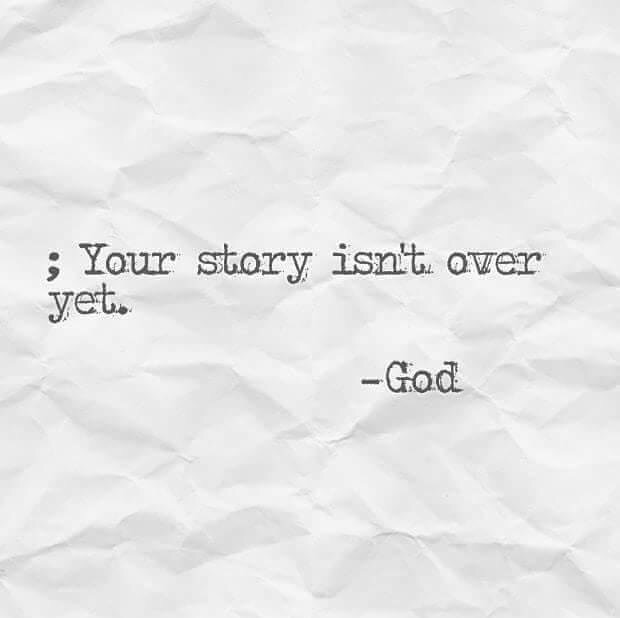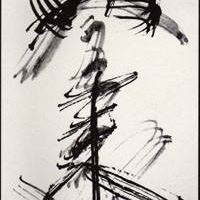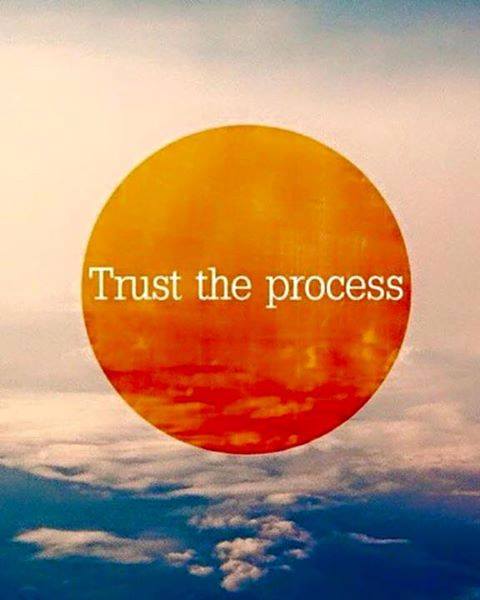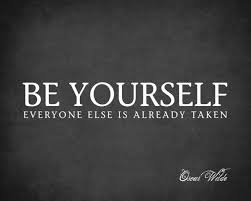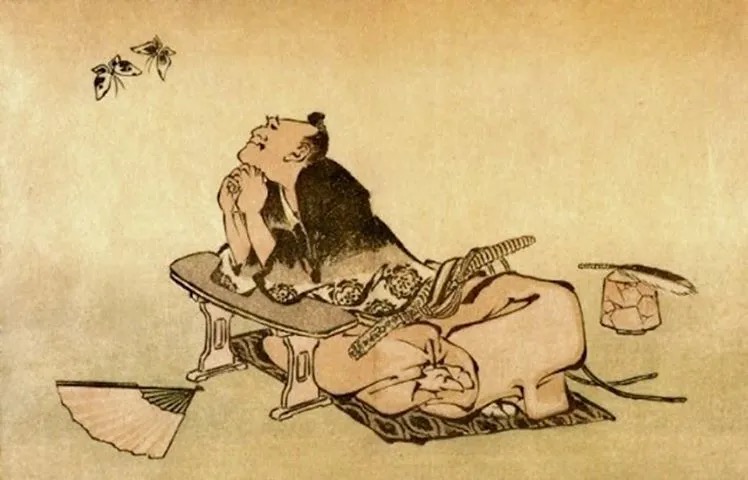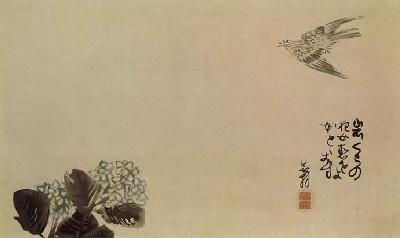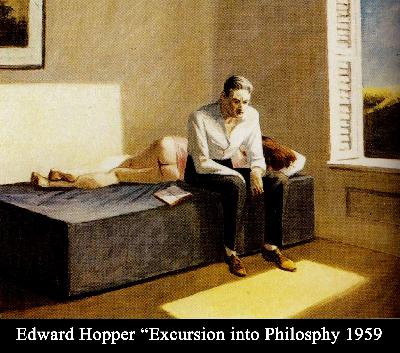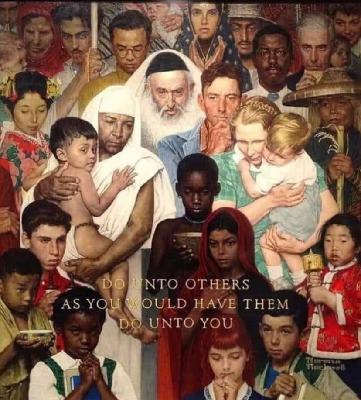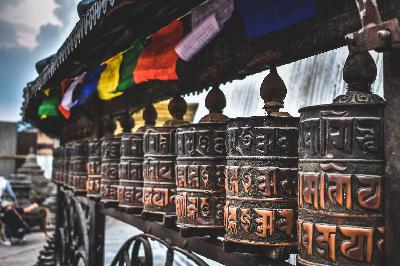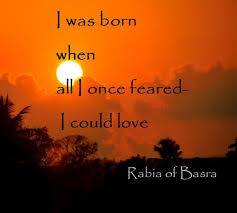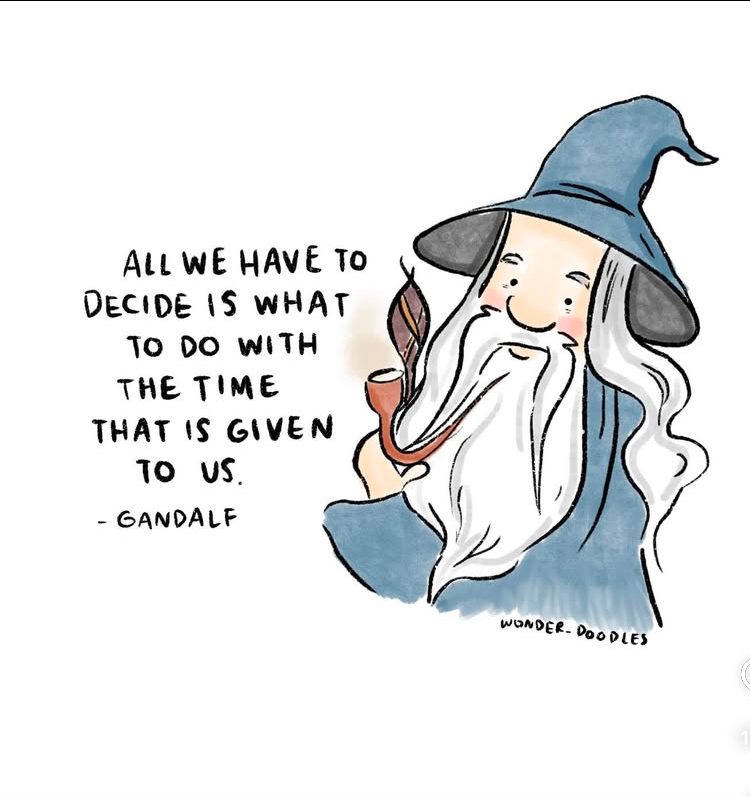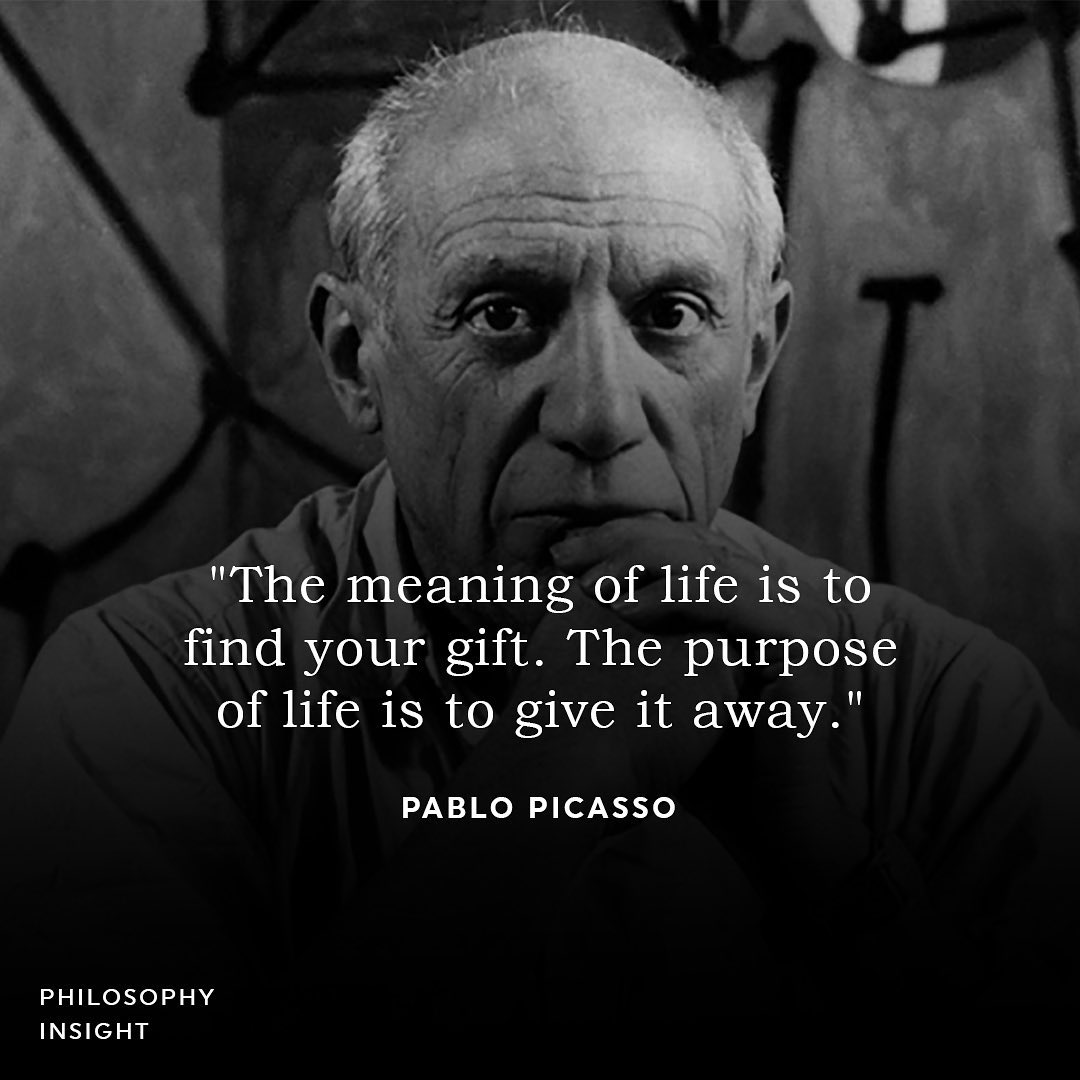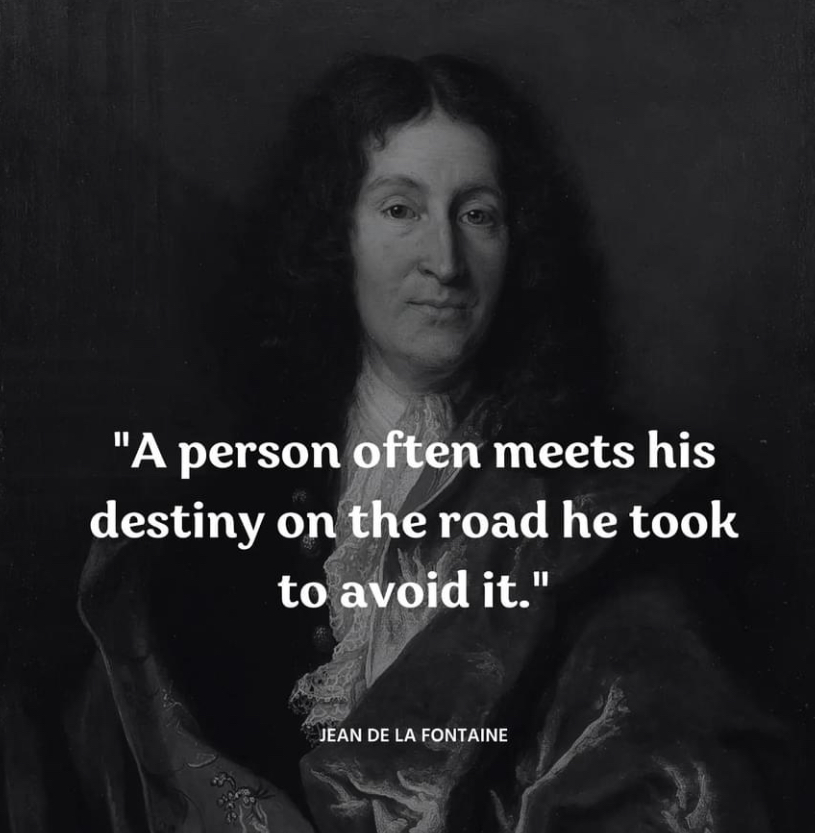Discover Unraveling Religion
Unraveling Religion

Unraveling Religion
Author: Joel Lesses
Subscribed: 11Played: 27Subscribe
Share
© 2023
Description
These mystical and practical discussions are explorations of spirituality and its relation to religion and psychology, with questions always. Beyond a specific religion or spiritual practice; what do we share, what do we have in common? These talks are a work in progress evolving our rich inner life, including reflections on religious texts, poems, art, and what is common in our human experience enhancing understanding of our relationships: with ourselves, with one another, and with the world we share.
Unraveling Religion has developed a cross-collaboration with both Lisa Carley's The Labyrinth podcast and Henry Cretella's Alchemical Dialogues podcast, cross-posting episodes both 'Selected, Best of The Labyrinth' podcast and 'Selected, Best of Alchemical Dialogues' podcast episodes, periodically.
Unraveling Religion has developed a cross-collaboration with both Lisa Carley's The Labyrinth podcast and Henry Cretella's Alchemical Dialogues podcast, cross-posting episodes both 'Selected, Best of The Labyrinth' podcast and 'Selected, Best of Alchemical Dialogues' podcast episodes, periodically.
71 Episodes
Reverse
In the second half of this two part conversation recorded, the panelist delve deeper into spirituality and practices with anticdotes, lessons, tips, and stories. Topics covered and included are Materialism and science and spirituality, relationships and consumerism, how does 'Service' relate to spirituality, healing and trusted loving relationships as spirituality, wonder and rest as spiritual practices, breath pratices connecting body mind and heart, and what role does the human body play in intelligent spirituality?
In this dynamic and unique discussion, Unraveling Religion brings together five former guests of the show: Chris, Henry, Rich, Sara and Bettie. Together with Joel, the panel explores the fundamentals of spirituality including what it is, what means, its potentials, and practices. Lively, invigorating, and warm - our discussion centered around exploring definitions, meaning and difference, perspective, and awareness. Topics covered were enlightenment versus separate self, spiritual experiences, connection and relationship, being at home in the world. Process? Change? Spirituality as life, with a Creation story. What role does suffering and healing play in spirituality?Biographies of the panel:Chris Barbera's biography includes currently 3 areas of spiritual life and work: working with and in relationship with the Network of Religious Communities, an interfaith human rights project; Chris also directs a prison theology writing program with inmates and faith communities; and writes, meditates and supports his local community. Henry Cretella is a retired psychiatrist, active spiritual guide, and teacher. He studied Sufism becoming a senior teacher before deciding to pursue his interests independent of any organization. He has co-founded Amber Light International, revolving around mysticism and humanism. He hosts his own podcast, Alchemical Dialogues, through Amber Light.Richard Grego is professor of philosophy and cultural history at Florida State College at Jacksonville. His research interests focus on comparative and cross-cultural philosophy of religion and science, metaphysics and philosophy of mind, the philosophical implications of theoretical physics and scientific cosmology, and history of World Civilizations. His recent books-publications include: Sensual Austerity and Moral Leadership: Plato, Confucius, and Gandhi on Building a Peaceful Society.Sara Hughes (she/they) is a Relationship Artist who seeks to live in right relationship to all in the Web of Life. Sara's relational work has been primarily focused on improving conditions for young people in the unceded Seneca/Haudenosaunee region of the land currently known as Rochester, NY. More information may be found at https://mama-sara-says.comBettie Scullin's previous life activities included working in accounting and quality management in the steel, high tech and food industries. Retired and living in Florida she offers Akashic records consultations and classes, devotes time to spiritual practices and meditations, writes poetry and enjoys participating in her grandsons’ lives.
In a Post-Pandemic June 2022, Joel and Chris sat together at Network of Religous Communities in Buffalo, New York and examined and reflected on Chris' travels to Seattle and San Fransisco via train, a pilgrimage.
Chris discusses his recent trip and the lessons, resolutions, and insights from his travels to the west coast, focusing on the spiritual aspects.
The conversation tends toward defining 'Pilgrimage' as setting an intention of questions and seeing what happens or unravels with the experience as an answer or response to the questions and intention.
After graduation from college, his path opened to extended compassion to the marginalized, the poor, and after college Chris entered into another phase of life, he lived in solidarity with people who were homeless, practicing presence and 'present-ness' with these communities.
Chris cites in his life the transformation from service to devotion: born into a challenging family, his compassion for others was cultivated, later manifesting into activism with the homeless communities and prisoners and inmates, seeking to address the Prison System.
Chris intentionally placed himself in the heart of suffering as an act of mercy to fulfill an aspect of his understanding of spirituality, and this helped him bridge his own suffering into compassion for others in community who are marginalized and suffer.
Chris was inspired reading the Buddhist Sutras and the New Testament, influenced by Buddha and Jesus.
Chris' understanding of activism and advocacy lends itself to cultivating and amplifying voices of the marginalized.
Chris shares he has been working with Jesus the Liberatory Seminary for over a decade, utilizing creativity and theology to amplify voices.
Prisoners share writings though Jesus the Liberator Seminary of Religous Justice, which has three books published:
Prison Theology (Published, 2013)
Dreamers, Romans and Prisons: Meditations on Crime, Illness, Healing and Liberation (Published, 2015)
More to this Confession: Relational Prison Theology (Published, 2020)
Chris found that communal living developed skill building toward activism, repair, and restoration. Chris talks about the 'why' of his activism, work, and devotion; the 'why' of activism identified by Chris is 'the general compassion for others, that is the 'why' of activism.'
This general compassion for people ties into activism and his pilgramages:
helps Chris in addressing suffering
'pilgrimages' uncover how and why one acts the way they do
Chris reflects on his initial pilgrimage, the Tenderloin District in San Fransisco
Chris took an early pilgramage to Wounded Knee (i.e., 1890 Massacre), also reflecting on Sitting Bull and Black Elk
Chris reads from his writings.
The discussion turns to The Ten (10) Ox Herding Dipictions and the Marketplace as the last of the Ten (10) Dipictions.
The conversation opens to a quotation shared by Roshi Philip Kapleau:
'life is not a riddle to be solved, but a reality to be lived.'
Many struggle with 'The Why?' of Life, the talk outlines 'the why' is for the Divine and 'the how' is for people to respond to Life's complexities.
Biography of Chris Barbera: Chris Barbera has lived in the backs of empty churches and intentional communities and worked on various social justice movements and has, for many years, administered an educational nonprofit, Jesus the Liberator Seminary of Religious Justice, which focuses upon developing a 'Prison Theology' with people incarcerated.
He currently li...
Pulled from the Archives of Unraveling Religion this June 2013 conversation with Chris Barbera explores discussion based on the book Prison Theology, published by Jesus the Liberator Seminary of Religious Justice, and opens the question:
'Can the criminal on the cross be the incarcerated, executed Godhead?'
Chris and Joel address America, Prisoners, and the Prison Industral Complex through a Restorative Justice lens and how to evolve and connect with spiritual teachings and pedagogical through a Restorative Justice framework.
'Prison Theology' is an extension of Liberation Theology:
At their core, both express a ‘preferential option for the poor’
Both work to articulate a theology that empowers people disaffected by dominant paradigms of power
Both articulations are born among the struggles of oppressed people '…and so we start from where we are.'
About the book Prison Theology, eight different writers share their experiences and thoughts regarding incarceration in America.
Restorative Justice was born in Latin America, and the Vatican II Era, a grassroots, poor people movement, mobilization to return the spiritual aspect of those who have been marginalized and inprisioned.
The discussion moves to these topics:
The notion of the Bodhisattva, responding to the cries of the world
Jesus as a Bodhisattva, who is considered Jesus?
Do money and wealth correlate with character, worth, and human value and dignity?
A person is free when they are allowed to work through their trials and tribulations
What is a crime versus what is criminalized?
Equality of the Law, a realistic approach to Justice
Judgement and Punishment
What is judgement?
Who determines the fate of others?
To evaluate how to better address the infractions society creates
Looking at Society and the Individual
Reconciliation: what is it?
bringing the sin and the rehabilitation from the sin together, refiguring and understanding it
society and inmate, reconciliation
victim and offender, reconciliation
when the victim has the strength, to offer forgiveness to the offender
looking at the context and circumstance of life of the inmate
Chris emphasizes the work should come from a place of love, concern for another person, regardless of the actions
Forming community, connection in community with theology, religious justice, education and Universities that have prison programs, and utilize them to work toward an equality of voices.
Chris' work helps to create a network unifying the connection between the church, the university, and inmate.
Chris shares his vision and hope where advocacy addressing the Prison Industrial Complex is going.
The Church and the University are within the inmate, Prison Theology and Liberation Theology seek to cultivate this understanding.
Biography of Chris Barbera: Chris Barbera has lived in the backs of empty churches and intentional communities and worked on various social justice movements and has, for many years, administered an educational nonprofit, Jesus the Liberator Seminary of Religious Justice, which focuses upon developing a 'Prison Theology' with people incarcerated.
He currently lives intentionally at the interfaith nonprofit, Network of Religious Communities.
In short, he has lived and worked with poor people at the intersection of grassroots justice movements, spiritually lived ideas and experiences in relation with institutional structures, traditions, and nonprofit efforts, as well as at the intersection of poetry and theo...
Pulled from the Archives of Unraveling Religion, this September 2009 episode recorded at the studio in the Home of The Future, Chris and Joel speak of the Erie County Holding Center Federal Investigation Findings of Human and Constitutional Rights abuses which open the talk to the practical responses from ancient and spiritual foundations and teachings to point the way and address to the conditions and actions that violated human and constitutional rights that were recorded and documented in the Federal Findings and Report.
Erie County Holding Center under Federal investigation, and Chris discusses the response from the Erie County Holding Center Leadership, 'consider the source' inferring that because the investigation addresses human and constitutional rights abuses of inmates and prisoners, there should be no concern, dehumanizing the reality that inmates and prisoners are human beings.
Chris and Joel expand the talk to Native Teachings and how labels and stereotypes dehumanize Native People concealing the deep wisdom and sanctity of Native People, the embodied connection with ecology and Nature, spirituality and honoring relations.
Regarding County Jails and Holding Center, some of the voices coming out of the Holding Center, what the experiences taught people who were/are prisoners and inmates:
wisdom born out of suffering
suffering is part of our world
suffering has helped created the greatest teachers of the world
making wisdom out of the suffering of the conditions of the Erie County Holding Center
Chris and Joel discuss incorporating meditation and ancient teachings applied not only to inmate and prisoners but also those as advocates and activists for the prison system.
The talk turns toward insights regarding the practical way of understanding projections of the mind toward others (e.g., inmates) as one's own dark aspect (e.g., Prison Leadership).
Also discussed, William Blake's Poison Tree:
'I was angry with my friend; I told my wrath, my wrath did end.I was angry with my foe: I told it not, my wrath did grow.'
Supermax Prisons seek to deepen isolation techniques for inmates:
'what is that really about?'
how is that considered ethical treatment of human beings
how does that contribute to the rehabilitation and restoration of people in prison
Siddhartha Gautama, 'ignorance is the main cause of human suffering.'
we create our own (human) experiencemuch of our choices are based on unconscious aspects of our human experience
'Cause and Effect' (i.e., Karma) is not (another) Law, but rather it is Reality Expressed, a practical expression of the Unity of Existence.
'Be Still and Know that I am God:'
what does that mean and how can it be applied to healing our prisons and prisoners
karma is also 'work' (i.e., another interpretation)
'you want to know my faith, look at my works'
if you want Justice in this world, find injustice and address it
spirituality as practical, a practical solution (i.e., spirituality is practical when applied with care)
when religion becomes a superstition, too abstract, or metaphysical, people lose genuine connection with God
Joel asks Chris what he hopes to see for a vision of the future
Community Action, call to action
Legal Route, class action law suit
Awareness
Joel and Chris close the talk referencing the Ba'al Shem Tov ('everything you see is a teaching for Divine Service to God') and Native American Teachings of animal spirit and animal totem.
Biography of Chris Barbera: Chris Barbera has lived in the backs of empty churches and intentional communities and worked on various social justi...
Sitting down with Chris Barbera at Network of Religious Communities to record this trailer, Joel opens to discuss, introduce, and summarize three recorded conversations, previously archived, and these newly edited talks include:
2009 'Real Flowers Of This Painful World,' Compassion Manifest For All Beings, Spirituality Forged Through Practical Application: A Conversation With Chris Barbera
2013 'Prison Theology,' Restorative Justice and Equalizing Voices, An Examination of The Prison Industrial Complex: A Discussion with Chris Barbera (scheduled release end of July 2025)
2022 A Pilgrimage, Journey Of The Heart: Examining 'The Why' Of Life With Chris Barbera (scheduled release end of August 2025)
Reissued, these previously archived talks with Chris are introduced and Joel and Chris address a summary of each episode and arrive at discussing the importance of mentorship in life as a part of societal restoration, the need for positive role models, both mascline and feminine to offer wisdom, guidance, and counsel to people who would otherwise be without it.
Music: Natalie Merchant 'Owensboro' and 'Poor Wayfaying Stranger' both from 'The House Carpenter's Daughter' (© 2003 Myth America Records)
In this final segment, more hilarity as the conversation loosens up. The poetry continues, talk of Bardos (spiritual realms), what does it mean when we first meet someone and time slows or stops, spiritual signs are discussed. The special evening ends with a favorite Rumi poem.
In this continuation of the three part show, Joel and Lisa talk more about identity and examine it through the psychological lens, relationship as a model of teaching, repressed memories; poetry begins to emerge in this second segment, existential psychology and mental health distress are examined. What do we attach or connect to in the world. Is the world physical spiritual or both? What does it mean to be a 'good father.' Past lives and poetry intertwine. What are we as human beings 'holding together' and what does it mean when we fall apart?
Lifted from the archives, this from July 2013, into the deep of night, armed with Mike's Hard Lemonaid, American Spirits, Pringles, Eckhart Tolle and Rumi, in Lisa's 2001 Black Hundai Elantra in the parking lot of Allentown Trading Company Gas station, at the corner of Buffalo's Allen Streen and Delaware Avenue, Lisa Carley Hotaling and Joel Lesses explore the nature of the existential condition and its relation to identity and reveal an enduring friendship. Using psychological, poetic and spiritual lenses, Lisa and Joel laugh, talk, drink, and smoke their way through a terrain that is both deeply personal and exploratory, introspective and hilarious.
Lisa was a Psy. D. student in Clinical Psychology with a Masters in Existential Humanist Psychology, poet, mother, student of Philosophy and English and artistian.
Part 2 of 'Echoes of the Tao, Seeking Truth Across Traditions,' starts with 'what does it mean to Serve and Love God (or Tao)?
God (Tao) says, 'be what I made you to be!'
God (Tao) is found in relationship.
Does God want us to know Him (or ourselves) most intimately?
Dependent Co-arising?
'Simultaneously, I and all beings attain the Way' (Awaken to Reality) ~Buddha
'Essentially, outside of me, nothing exists'
Verse 18
What does it mean to let go?
What do we let go of?
To be human is to be attached?
Closes with Verse 81, and then Joel reads two poems by Ikkyu.
Biographies of Panel:
Dr. Bob Insull is an New York State Licensed Psychologist with more than 60 years experience teaching, training, and treating in the arena of human behavior. In his clinical practice, he has worked across the developmental stages (children to golden-agers), across the diagnostic spectrum (chemical dependency, severe mental illness, relationship issues, depression, anxiety, and PTSD), and treatment settings (clinics, inpatient psychiatric centers, and private practice). During the closing years of his practice, he became interested in the area of psychological trauma and worked with survivors in individual and group settings. He has been retired from active practice for about 15 years and spends his time engaged in self-discovery on the Sufi Path and social-change activities with his church.
------
Brian Mistler enjoys communing with fellow inquirers and reflecting together on revealed perennial wisdom.
Hari Om Tat Sat. Peace, peace, peace.
-------
Richard Grego is Professor of philosophy and cultural history at FSCJ. His research interests focus on cross cultural themes in religion and science - including philosophy of mind, comparative world religions/world civilizations, and the metaphysical - theological implications of theoretical physics and cosmology. His publications have included studies in the history - philosophy of science and conceptions of nature in the history of western philosophy, as well as cross-cultural perspectives on mind/ consciousness in western philosophy - psychology and the neo-Vedanta Hindu tradition. Prior to his academic career, he was a criminal investigator - polygraph examiner for the Florida Office of the Public Defender and in the private sector Instructor at the Criminal Justice Institute and International Academy of Polygraph Science in Florida, and national Academic Director of the Criminal Defense Investigation Training Council.
-------
Joel David Lesses is President and Executive Director of Education Training Center, Inc. and his work experience is in education, psychology, and counseling for people marginalized by trauma, addiction, and psychological distress. He is deeply vested in addressing the effects of mental health distress and its marginalization including, incarceration, homelessness, and institutionalization. Joel is dedicated to reframing mental health distress as a potential spiritual marker and existential opportunity. He holds dual Master of Science degrees from University at Buffalo in Rehabilitation Counseling and Biomedical Sciences with a concentration in Epidemiology.
-------
Henry Cretella, M.D. studied and practiced Tibetan Buddhism for several years along with training in martial arts. He then immersed himself in the more universal Sufism of Inayat Khan, an Indian mystic, for close to twenty years. He functioned as a senior teacher in the Inayati Order and the Sufi Healing Order before pursuing his independent practice and study of mysticism. He now integrates what he has learned and experienced over these many years. He graduated from Vanderbilt Medical School and completed his psychiatric training at Strong Memorial Hospital of the Univer...
In this exploration of the Tao Te Ching and other traditions, the conversation opens to introductions of the five Panelists and a invocation of hope of others to investigate the Tao Te Ching.
Bob, Brian, Rich, Henry and Joel share Verse 1 and questions arise:
What is Reality?
Is the Tao Reality?
What is the Tao?
What does the term Anti-foundational mean?
Reversal Yin/ Yang in relation to Tao.
Paradox and the Tao.
Everyday consciousness is the pathway to the Tao.
What is the relationship with Buddhism, Hinduism, Christiainity and Tao?
What does silence offer in relation to the Tao?
The Beginningless Beginning?
Is the Tao directly knowable?
Tibetan Buddihsm and the Tao.
Verse 17 and Verse 38 are explored.
Wu Wei.
How do we serve God?
How do we serve Tao?
Why did God create?
Biographies of Panel:
Dr. Bob Insull is an New York State Licensed Psychologist with more than 60 years experience teaching, training, and treating in the arena of human behavior. In his clinical practice, he has worked across the developmental stages (children to golden-agers), across the diagnostic spectrum (chemical dependency, severe mental illness, relationship issues, depression, anxiety, and PTSD), and treatment settings (clinics, inpatient psychiatric centers, and private practice). During the closing years of his practice, he became interested in the area of psychological trauma and worked with survivors in individual and group settings. He has been retired from active practice for about 15 years and spends his time engaged in self-discovery on the Sufi Path and social-change activities with his church.
-------
Brian Mistler enjoys communing with fellow inquirers and reflecting together on revealed perennial wisdom.
Hari Om Tat Sat. Peace, peace, peace.
-------
Richard Grego is Professor of philosophy and cultural history at FSCJ. His research interests focus on cross cultural themes in religion and science - including philosophy of mind, comparative world religions/world civilizations, and the metaphysical - theological implications of theoretical physics and cosmology. His publications have included studies in the history - philosophy of science and conceptions of nature in the history of western philosophy, as well as cross-cultural perspectives on mind/ consciousness in western philosophy - psychology and the neo-Vedanta Hindu tradition. Prior to his academic career, he was a criminal investigator - polygraph examiner for the Florida Office of the Public Defender and in the private sector Instructor at the Criminal Justice Institute and International Academy of Polygraph Science in Florida, and national Academic Director of the Criminal Defense Investigation Training Council.
-------
Joel David Lesses is President and Executive Director of Education Training Center, Inc. and his work experience is in education, psychology, and counseling for people marginalized by trauma, addiction, and psychological distress. He is deeply vested in addressing the effects of mental health distress and its marginalization including, incarceration, homelessness, and institutionalization. Joel is dedicated to reframing mental health distress as a potential spiritual marker and existential opportunity. He holds dual Master of Science degrees from University at Buffalo in Rehabilitation Counseling and Biomedical Sciences with a concentration in Epidemiology.
-------
Henry Cretella, M.D. studied and practiced Tibetan Buddhism for several years along with training in martial arts. He then immersed himself in the more universal Sufism of Inayat Khan, an Indian mystic, for close to twenty years. He functioned as a senior teacher in the Inayati Order and the Sufi Healing Order before pursuing his...
The I Thou Video Series' host Richard Wicka has a conversation with Joel opening with the posited question, 'What Is?' or 'What Is, existentially?'
The discussion response from Richard offers Panta Rhei (i.e., everything changes).
What is identity?
Identity and a Real Self, are there two aspects within each of us?
Is only one real?
Kireeragard: real world self (work self), imaginary self (the self you desire to be), true self (the one you don't know be discover)
The question of First Principles (i.e., don't question, axiom)
Richard as a mentor to many, including Joel, at Home of the Future
The beginning of Unraveling Religion podcast, when Richard asked Joel 'would you like to do a radio show?'
Arguments of Philosophy can sharpen one another
Chavruta and sharping one another
Thomas Aquinas
Do things exist outside of time?
Zen (i.e., in China Ch'an, the Mind Only School of Buddhism) is discussed
Bodhidharma and Joshu, and the koan 'does a dog have Buddha nature?'
Joshu started teaching at age of 80 and lived to be 120, he taught for 40 years
Does this contradict Hieggerder's Being and Time that everything exists in Space and Time
Is economics the basis of consciousness?
Richard and Joel deconstruct that premise
The reciprocity of energy is the basis of healthy community
How do we support people who do not value the importance of recipocity
Father Greg Boyle, Gangs Service and Kinship
Judaism's emphasis on care for the widow, stranger, and the orphan
The Lubavaticher Rebbe emphases on care of those without parents
How is this emphases is embeded in Torah?
From Richard Wicka's notes:
Kierkeggaard spoke about the concrete self (where you are today), the ideal self (the self you aspire to be) and the true self (the self that contains all your potential)
'Expanse' (a type of experience) is in contrast to words you use to describe the world.
You are observing.
(Identity is a verb not a noun).
I can't think of anything that exists outside of time. People who think there are such things are following in the footsteps of Plato.
Krista Tippets has a podcast called 'On Being'.
The widow, the stranger and the Orphan vs. The Alienated, the ostracized and the damned.
I am where I am now because of good mentorship.
Biography
Richard Wicka is a Buffalo, N.Y.-based media artist and photographer and the proprietor of "The Home of the Future,"a media access center and production/recording studio based in his Kaisertown home.
Wicka has been providing a forum for artists in all media, activists, and everyday...
Pádraig Ó Tuama joins Joel and shares a conversation from the heart about poetry, spirituality, community, and communion.
The conversation opens to how Joel and Pádraig met, and what informed Pádraig's life as a Poet and Theologian. Pádraig recalls the influences of Ireland and school and the foundation of poetry in that experience, and poetry as resistance, and the role of Peacemaker in the world.
Pádraig reads from his new book of poetry Kitchen Hymns' poem, 'The Long Table.'
The conversation opens to many faces of poetry and existence:
Are we irrelevant to the Universe or is the human being the center point of existence?
Do we understand what Love Is?
Joel reads from the Mountains and Rivers Sutra of Dogen Zenji's Shobogenzo
Coming together for the point of comprehension and not necessary agreement
The Church views of LGBTQ+ Community
Beyond formal belief and nurturing the heart
Pádraig and mentoring the younger generation
Pádraig's Kitchen Hymns and On Being's Poetry Unbound Anthology released in 2025: 44 Poems on Being with Each Another
Jewish Mysticism and Kabbalah
Kabbalah is for Humankind
Plato's Soul with Two Faces
The importance of Good Questions is rooted in Judaism and is applicable to all spiritual traditions
Midrash in Judaism
The body and the erotic in relation to spirituality and the deeper questions of existence
Star of David deconstructed
In Judaism a single person is known as half a human being
The Garments of the Soul: Intention, Thought, Action, and Speech
The Zohar and the thirst for deeper esoteric secrets
Pádraig examines the relationship between poetry and prayer
'You' in poetry, most prayers include the word 'you'
Pádraig reads from Kitchen Hymns, 'Do You Believe In God?'
Close examination of a text will lead you into infinitity
Are Jewish soul's always in Jewish bodies?
Joel reads Gary Synder's 'Why Log Truck Drivers Rise Earlier Than Students of Zen'
Poetry transports us to other time and place, poetry as a time-machine
Rooted spirituality is in the body
Crazywise Documentary Filmmaker Phil Borges joins Joel for a discussion of Phil's life post Crazywise and together they explore mental health and its relation spirituality, beginning with how does one define spirituality.
Phil's history of experiences into spirituality, beginning with the death of his father and Phil's Aunt returning from a psychiatric hospitalization to Phil's home when Phil was a boy.
Also discussed, Phil's career development and choice and his search for meaningful work; from Orthodontistry to Photography and shooting covers of Romance Novels, Phil begin an ascent into work and exploring indigenous cultures.
His first project was working on a project in Tibet which he meet a young man identified as a Tulku (i.e., channeler of the Nachung Oracle, the Oversoul Protector of the Tibetan People Culture and Heritage).
Phil interviewed the Tulku and learned how he came to his position in the Tibetan community.
The indicators of this position were seen in his Tibetan Community as positive signs of a gifted person and included mood swings, personality changes, hearing voices, and seeing visions.
This mental health crisis was the mark of a gifted person in Tibetan community.
In other work, Phil worked with Amnesty International and the Samburu Tribe in where he met a young woman who at 14 started hearing voices and seeing vision.
Her grandmother recognized she had the gift to become a predictor, healer, and shaman in her community and took her under her wing and mentored her and these gifts into a skillset to benefit the community.
As Phil worked with many indigenous communities he began to interview the shaman, seers, healers, and predictors of these communities and found about 85% of the shaman had an an initiation into the path of the Shaman by a mental health crisis, defined by what the West would call psychosis.
The community understood the mental health crisis as the beginning of a process of developing a person to become a leader, healer, and teacher in their community, and an elder would take them under their wing and mentor and guide them.
The mental emotional crisis is known by many shaman as 'The Little Death' or Ego Death.
Phil also in his career worked with neuroscientists to research the pathways of the brain.
Sudden awakening versus slow awakening was discussed across cultures (i.e., Mahayana school of Soto and Rinzai).
Phil also discusses his own experiences with psychedelics and micro-dosing and the importance of integrating those expericences into daily life require effort and work.
Phil and Joel discuss that we each have a specific kind of work and the human's journey is to search and find what that work might be.
Liminal Space was defined as a threshold or a doorway and rebuilding after a breakthrough.
Phil reflects on his life now and his work on his memoirs documenting where his quest for meaningful work took him through his life.
Biography
Phil Borges, has been documenting indigenous cultures and striving to create an understanding of the challenges they face. Phil has spoken at multiple TED talks; including TED in 2007, TEDxRainier in 2012 and TEDxUMKC in 2013 and hosted television documentaries for Discovery and National Geographic.
Naomi Shihab Nye opens the talk reading a new, recently penned poem, Current Affairs.
Dr. Izzeldin Abuelaish then introduces himself and segways into the realities of his experiences growing up in Gaza, the Jabalia Camp, what he has seen and witnessed, the loss of his three daugthers and niece in 2009 from an Israeli tank shell (i.e., I Shall Not Hate) and his pride in his Palestinan heritage, family, and community.
He shares his deep belief and conviction 'nothing is impossible in life.' He also expresses:
Medicine as a great human equalizer
Toward human rights, once people step away from the border of the hospitals, they become categorized and labeled 'Palestinian' or 'Israeli'
If you believe in Humanity, we must all stand for all
Human Rights is deeply tested in Gaza, people must stand up for human rights
Advocate not for peace but for dignity, justice, freedom, and human rights for all: peace will follow when these conditions are cultivated
Naomi shares her family history and the experiences of relocating after the Nakba. Naomi also shares:
As a poet, every voice is important in the world, every voice represents humanity.
Regarding Gaza, this is an overwhelming tragedy of sorrow
The importance of actions based on one's convictions
The power of the military industry complex to overide the voice of the majority and humanity's collective voice
How can we be heard, how can we be listened to?
Who is listening?
The idea, our obligation is to our humanity, looking within our selves we recognize our humanity
Dr. Abuelaish shares his experiences as an author.
The priority of Palestinians toward education.
Human Rights, respect and dignity for all.
What is our modern sense of responsibility and obligation toward our fellow humans, what is our modern sense of meaning, mission, and purpose.
A human being is a human being [only] through another person.
Truth telling as means of healing.
The situation is Gaza and West Bank harms Israel deeply as well.
Naomi shares Hibu Abu Nabab's poem, Not Just Passing.
The political power and politics contrbuting to the crisis in Gaza and the West Bank.
Dr. Abuelaish reviews the history of Gaza since 2000.
And, Naomi closes with her poem, For Gaza
The children are still singing
They need & want to sing
They are carrying cats to safe places
Holding what they can hold
In Part 2 of this heartfelt talk, David and Joel discuss poetry as a transmission, what the heart of one poet offers to others, and their community, and the notion of transmission from 'mind to mind from mind' within the frame of poetry.
David recalls a story of Maj pulling up in David's driveway in Maj's Chevy Nova and Maj reciting Antonio Machado's 'Last Night, As I Was Sleeping.'
David and Joel discuss David's forthcoming memoir 'Prayer Wheel' and Maj's influence, open readings in Kent, and death and how it is healthy to openly discuss death as a preparation for its coming.
The unique quality of the Kent poetry community and Kent as a epicenter and confluence as a spiritual portal, and Kent's poetry commmunity as wisdom holder and torch-bearer drawing poets to the Kent community.
Dreams as a connection with our ancestors and those dreams as a conversation with messages from our ancestors for us, waking us up to what we need to see our lives more clearly.
Hearing the voices of the living and the dead, and how we tend to the dead as a reflection of the quality of our life.
David offers the Mayan teaching that the other world sings us into being.
David and Joel close out the conversation with discussion of the 40th Anniversary Celebration of the Wick Poetry Center, and winding down David reads 'Kissing Lightening.'
Biography
David Hassler is the Bob and Walt Wick Executive Director of the Wick Poetry Center at Kent State University and cofounded Traveling Stanzas, a community arts project which brings poetry to the most urgent and evolving needs of our communities through expressive writing interventions, interactive exhibits, and digital platforms. Most recently in May 2023, Hassler presented the Poets for Science project with poet Jane Hirshfield at the Nobel Prize Summit at the National Academy of Sciences. Hassler is the author or editor of ten books of poetry and nonfiction, including Dear Vaccine: Global Voices Speak to the Pandemic. His play, What We Learned While Alone, drawn from the Dear Vaccine anthology, debuted at the National Academy of Sciences in October 2022. Hassler is also the author of the play, May 4th Voices: Kent State, 1970, based on the Kent State Shootings Oral History Project, which was produced in 2020 as a national radio play. Hassler’s awards include Ohio Poet of the Year, the Ohioana Book Award, and the Carter G. Woodson Honor Book Award. His memoir 'Prayer Wheel' is forthcoming. His TEDx talk, “The Conversation of Poetry,” conveys the power of poetry to strengthen communities. In addition to his creative writing publications, he has co-authored articles on poetry, technology, and healing in the Journal of Palliative Medicine, the Journal of Technology and Teacher Education, and the Online Journal of Issues in Nursing.
Part 1 as the conversation begins, David and Joel share David's introduction and talk about poetry as a growing voice to address 'what troubles us' and the community of poetry providing a sense of belonging.
David gives a history of the Wick Poetry Center and his academic career.
The conversation examines 'how do we make sense of the world and manage our own life?' with and through poetry.
Discussion turns to the topic of death and the loss of David's mother as a source of need to write and make sense of the grief and loss for David, and how he was influenced by Maggie Anderson and Maj Ragain.
David shares his travels to Japan and Obon Festival in Japan and David's connection to the festival and its relationship to his mother's passing, his coming to terms with her death through poetry.
David reads his own poem 'Obon.'
Also discussed, how Maj Ragain lit the light of poetry in others.David shares a dream about Maj, how he felt Maj visited David in the dream, and Maj shared to David, 'you cannot touch me.'
Threading the voices of poets, living and dead throughout the ages, poetry as a way of keeping poetry alive for our Kent poetry community.
David reads his own poem 'Sharing The Drum That I Am.'
Biography
David Hassler is the Bob and Walt Wick Executive Director of the Wick Poetry Center at Kent State University and cofounded Traveling Stanzas, a community arts project which brings poetry to the most urgent and evolving needs of our communities through expressive writing interventions, interactive exhibits, and digital platforms. Most recently in May 2023, Hassler presented the Poets for Science project with poet Jane Hirshfield at the Nobel Prize Summit at the National Academy of Sciences. Hassler is the author or editor of ten books of poetry and nonfiction, including Dear Vaccine: Global Voices Speak to the Pandemic. His play, What We Learned While Alone, drawn from the Dear Vaccine anthology, debuted at the National Academy of Sciences in October 2022. Hassler is also the author of the play, May 4th Voices: Kent State, 1970, based on the Kent State Shootings Oral History Project, which was produced in 2020 as a national radio play. Hassler’s awards include Ohio Poet of the Year, the Ohioana Book Award, and the Carter G. Woodson Honor Book Award. His memoir 'Prayer Wheel' is forthcoming. His TEDx talk, “The Conversation of Poetry,” conveys the power of poetry to strengthen communities. In addition to his creative writing publications, he has co-authored articles on poetry, technology, and healing in the Journal of Palliative Medicine, the Journal of Technology and Teacher Education, and the Online Journal of Issues in Nursing.
Part 2 the Panels opens to discuss:
'What makes us come alive?'
'What is your 'note' in life?' (Rumi's 'be your note.')
Discussion turns to Rumi's quote 'when I was young I wanted to change the world, when I grew older I wanted only to change myself.'How do we attune to spiritual teachers? How do we know who our spiritual teachers are meant to be?Moments that open and we lose sense of time, time falls away:
Activity
When meeting new people, old karmic connections?
In our Dharma, our work
Henry's discussions, Sohbet, mystical discussions on mystical subjects, with his teacher.
How do we find what makes us home in the world?
How do we cultivate spiritual discernment in Life?
The World as ourself
Is there preparation to receive 'flow' states?
The Panel also explores:
Where does the spiritual path begin?
What are the implications of having a guide or spiritual teacher?
Teachers seeing into their students
Tears as an indicator of one's spiritual path
Sufism as a path of 'heart'
Karma of helping others as way of being helped
The importance of 'others before self.'We end with two poems from Ikkyu:Raincoat and Straw HatWoodcutters and fishermen know just how to use things.What would they do with fancy chairs and meditation platforms?In straw sandals and with a bamboo staff, I roam three thousand worlds,Dwelling by the water, feasting on the wind, year after year.I Hate The Smell of IncenseA master's handiwork cannot be measuredBut still priests wag their tongues explaining the 'Way' and babbling about 'Zen.'This old monk has never cared for false pietyAnd my nose wrinkles at the dark smell of incense before the Buddha. Biographies of Panel:Dr. Bob Insull is an New York State Licensed Psychologist with more than 60 years experience teaching, training, and treating in the arena of human behavior. In his clinical practice, he has worked across the developmental stages (children to golden-agers), across the diagnostic spectrum (chemical dependency, severe mental illness, relationship issues, depression, anxiety, and PTSD), and treatment settings (clinics, inpatient psychiatric centers, and private practice). During the closing years of his practice, he became interested in the area of psychological trauma and worked with survivors in individual and group settings. He has been retired from active practice for about 15 years and spends his time engaged in self-discovery on the Sufi Path and social-change activities with his church.Brian Mistler is a hillbilly from rural Missouri, he has spent his life investigating Reality and learning about the apparent world. He has lived as a computer scientist, psychologist, running and growing some successful businesses, helping others entrepreneurs, hospitals, and healthcare providers. In 2021, Brian had a partially debilitating nerve injury and soon after met a true Vedanta teacher who spent 30+ years in India and trained under Swami Chimayananda, Sawmi Dayananda, and others. He now studys and disseminate non-dual wisdom through writing and conversation. The Om/Aum is a reminder of this fact.Richard Grego is Professor of philosophy and cultural history at FSCJ. His research interests focus on cross cultural themes in religion and science - including philosophy of mind, comparative world religions/world civilizations, and the metaphysical - theological implications of theoretical physics and cosmology. His publications have included studies in the history - philosophy of science and conceptions of nature in the history of western philosophy, as we...
Part 1 of this discussion examines psychology, philosophy, religion, spiritually, science, and medicine, a panel of five (5) people opens with the question, 'where am I?' and 'what is going on [in the world]?' and refers to James Hillman, ideas and action as an artificial distinction, are they the same thing? How are they interlinked?
The poet Major Ragain is quoted, 'contemplation alters the course of rivers.'
From the Bhagavad Gita:
Freedom from action is not accomplished by abstaining from action, so how is it accomplished?
Relinquishing the fruit of action
Ghandi's, 'through service, I find myself.'
The Panel begins to examine the Taoist concept of non-action, Wu Wei.
How do we cultivate Wu Wei?
The Panel explores Univerisal Truths.
Natural action arises, we have a deep intrinsic calling, how do we find and express it?
What is our reason for being here?
To receive the Divine Will is a part of choiceless action.
Biographies of Panel:
Dr. Bob Insull is an New York State Licensed Psychologist with more than 60 years experience teaching, training, and treating in the arena of human behavior. In his clinical practice, he has worked across the developmental stages (children to golden-agers), across the diagnostic spectrum (chemical dependency, severe mental illness, relationship issues, depression, anxiety, and PTSD), and treatment settings (clinics, inpatient psychiatric centers, and private practice). During the closing years of his practice, he became interested in the area of psychological trauma and worked with survivors in individual and group settings. He has been retired from active practice for about 15 years and spends his time engaged in self-discovery on the Sufi Path and social-change activities with his church.
Brian Mistler is a Missouri-hillbilly curious about Reality. He has lived as a computer scientist, psychologist, running and growing businesses, and helping entrepreneurs, hospitals, and healthcare providers. Mid-life Brian had a partially debilitating nerve injury and soon after met a true Vedanta teacher who spent 30+ years in India and trained under Swami Chimayananda, Sawmi Dayananda, and others. This refocused his study of the classic non-dual wisdom as presented in the Bhagavad Gita and Upanishads. Learn more at http://www.stillcenter.media. Hari Om Tat Sat. Peace, peace, peace.
Richard Grego is Professor of philosophy and cultural history at FSCJ. His research interests focus on cross cultural themes in religion and science - including philosophy of mind, comparative world religions/world civilizations, and the metaphysical - theological implications of theoretical physics and cosmology. His publications have included studies in the history - philosophy of science and conceptions of nature in the history of western philosophy, as well as cross-cultural perspectives on mind/ consciousness in western philosophy - psychology and the neo-Vedanta Hindu tradition. Prior to his academic career, he was a criminal investigator - polygraph examiner for the Florida Office of the Public Defender and in the private sector Instructor at the Criminal Justice Institute and International Academy of Polygraph Science in Florida, and national Academic Director of the Criminal Defense Investigation Training Council.
Joel David Lesses is President and Executive Director of Education Training Center, Inc. and his work experience is in education, psychology, and counseling for people marginalized by trauma, addiction, and psychological distress. He is deeply vested in addressing the effects of mental health distress and its marginalization including, incarceration, homelessness, and institutio...
Rabbi Jessica Minnen and Joel sit for a deep examination of work and the different forms work takes for us as human beings.
Rabbi Jessica and Joel start with discussing Torah and the teaching of G-d's Work (i.e., Six (6) Days of Creation) and G-d's Rest, and how that relates to Shabbas:
The conversations about the Shabbas Hebrew shoresh (i.e., root of the word) 'shin, bet, and taf' (i.e., Shabbas)
From the teaching of Shabbas, the thirty-nine (39) forms of Melachot (i.e., work) are discussed, and Melachot is outlined as work forbidden on Shabbas.
The definition of the thirty-nine (39) Melachot comes from the work required to create the Mishkan (i.e., Tabernacle) and that specific work defines what work is not allowed on Shabbas.
Also discussed is the relationship between work and destiny, and the spirituality of work.
An excerpt from Pema Chodron 'nothing leaves us before it teaches us what we need to know' suggests the work required in human relationships and the teaching of Reb Soloveitchik are also discussed: two stories of creation in Torah point to two ways to relate to the world and two kinds of work: physical and spiritual.
Work and its relation to authencity and authenic expression versus Quid Pro Quo are contrasted, as well as women in work from a Judaism perspective, evolution of women and work and practical consideration.
The organization 'One Table' is mentioned, helping young people access Shabbas Dinner experiences.
Plato's teaching of the Soul with Two Faces and its relation to the Jewish teaching of Bashert and Kabbalah.
Lanie Gardner as an example of authencity in work.
Tzelem Elokim (i.e., humans are created in the image of G-d) posits that because God creates, we too are meant to create.
Are we called to create in work through destiny or do we work to pay bills and solve practical problems.
Work is revealed in it own time.
Marcus Aurelius 'the obstacle is the door.'
Chappell Roan and their NPR Tiny Desk.
How to make work meaningful for all.
Seattle Grunge scene in the early 1990s an an authentic expression of music and work.
The shoresh 'aleph, lamed, and chaf' (i.e., from Melachot) ties to 'dispatching for a purpose' and the root ties to the Hebrew work for 'Messenger' and/or 'Angel'- that work offers purpose, and can give one a sense of mission that ties into intention and service.
About Rabbi Jessica Minnen
Rabbi Jessica Minnen is a writer, ritualist, and liturgist committed to the discipline of delight.
Inspired by user-...




